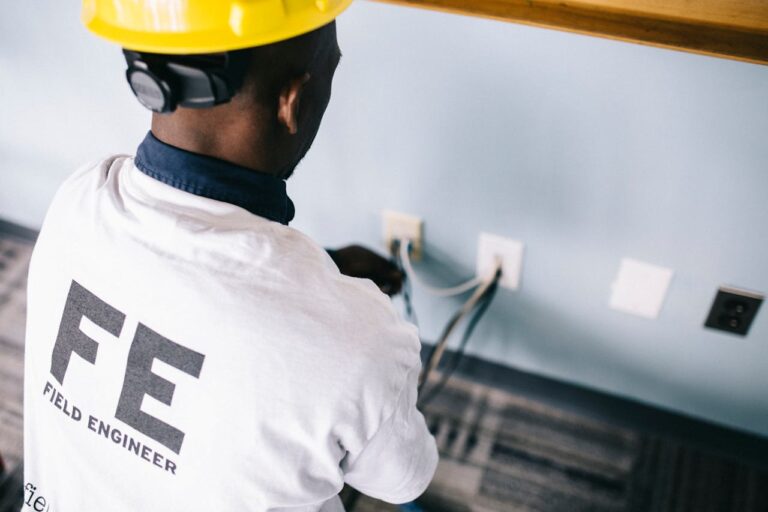
Preventing Electrical Fires: A Comprehensive Guide for Home Safety Enthusiasts
Electricity powers our homes, lights our way, and keeps our gadgets humming. Yet, in a heartbeat, an electrical issue can escalate into a life-threatening scenario. This isn’t an alarmist declaration; it’s a sobering truth. Electrical fires are on the rise, and awareness about their prevention is more crucial than ever.
Understanding the causes, undertaking preventive measures, and knowing what to do in an emergency isn’t just savvy—it’s an imperative. Because when it comes to electrical safety, forewarned is forearmed. Here’s how you can keep your sanctuary safe.
Understanding the Causes of Electrical Fires
It’s often a cocktail of neglected warning signs and poor electrical habits that ignite a fire. Frayed wires, faulty outlets, and overloading circuits are just a few examples of potential fire starters. Familiarize yourself with these potential hazards to bolster your home’s safety defenses.
Common Culprits of Electrical Fires
Frayed Wires: Constant wear and tear can strip the protective insulation, leaving wires vulnerable and potentially causing short circuits.
Loose Outlets: These create a spark, leading to smoldering in the walls, often going unnoticed until they’ve become a full-blown fire.
Old Appliances: Outdated gadgets may have faulty or deteriorating internal wiring that spells trouble.
Warning Signs You Shouldn't Ignore
Flickering Lights: Unexplained flickering that persists could signal an underlying wiring issue.
Warm Appliances or Switches: If your gadgets or switches are oddly warm to the touch, investigate immediately.
Burning Odors: Any burning smell, especially near electrical outlets, is a red flag.
Taking heed of these signs isn’t just optional—it’s a homeowner’s responsibility to ensure a safe living environment.
Implementing Preventative Measures
The best defense is a good offense, and the same holds true for staving off electrical fires. Regular maintenance and strategic upgrades can nip issues in the bud, significantly reducing your home’s fire risk.
Regular Electrical System Maintenance
Consistent checks by a professional can catch potential fire hazards before they spark trouble. Inspectors will look for overloaded circuits, outdated wiring, and other issues that spell danger.
Upgrading to Modern Safety Standards
Your home’s electrical system is dated if it isn’t up to par with modern demands and safety codes. Don’t skimp on installing GFCI (Ground Fault Circuit Interrupter) outlets or AFCIs (Arc Fault Circuit Interrupters) where required. These innovations offer critical protection against fire-causing faults.
Proper Use and Maintenance of Appliances
From the toaster in your kitchen to the charger beside your bed, those electrical heroes need care.
Regular Cleaning: Dust can be abrasive and conductive, leading to issues.
Safe Storage: Don’t crimp or coil cords tightly, as this can lead to fraying or exposure of inner wires.
Overloading Outlets: Avoid plugging in too many devices at once; use a surge protector if needed.
Adopting these practices safeguards against unnecessary risks and prolongs the life of your electrical devices.
DIY Tips for Homeowners
There’s a lot you can do yourself to maintain a safe electrical environment.
The Safe and Sound Approach to DIY Electrical Work
Knowledge is Power: Arm yourself with knowledge. Understand the basics of your home’s electrical system and the limitations of your DIY skills.
The Right Tools: Never skimp on the quality of tools and materials for any electrical work.
Step-by-Step Safeguarding: Turn off the power at the breaker whenever you’re working on electrical components.
DIY can be incredibly fulfilling, but when it comes to the heart of your home’s safety, caution is paramount. If you’re unsure, don’t hesitate to call in the experts.
In Case of an Electrical Fire
Should the unexpected happen, swift and smart action can save lives and property.
Safety First: Always put your and your family’s safety above all else. If the fire is small and you can do so safely, use a fire extinguisher designed for electrical fires. If not, get out and call for help.
Contain the Fire: If possible, try to contain the fire by disconnecting the electrical source. ACO Power Ltd suggests using a tool designed for the task, like a non-conductive rake or pole.
Notify the Authorities: Always call emergency services, even if the fire seems minor.
These steps are essential, but remember, your well-being is irreplaceable, and materials can be recovered.
Professional Consultation and Services
There’s no substitute for expertise. Engage with a professional to perform thorough assessments and vital upgrades.
The Electrician's Role in Your Home's Safety
Electricians aren’t just for repairs. They are your partners in proactive safety.
Assessment Audits: Professional electricians can conduct safety audits to identify areas of concern and educate homeowners on maintaining a safe electrical environment.
Upgrade Planning: A trusted electrician can help plan and execute necessary upgrades, ensuring work is done according to code.
Emergency Response Systems: They can also help install or maintain life-saving systems, such as smoke alarms and emergency lighting.
Partnering with a seasoned electrician offers peace of mind—knowing that your fire safety measures are watertight.
Conclusion: A Shared Responsibility for Safety
The threat of electrical fires is a shared concern; it affects us all. It’s a reminder that while our high-tech world is wondrous, it’s also fragile. We need to be conscientious in our use of electricity, consistent in our maintenance efforts, and collaborative in our safety approaches. This is a new chapter in homeownership—one where vigilance and preparedness are the leading characters.
To our fellow safety enthusiasts and homeowners, remember, staying abreast of potential fire hazards is as much a part of your dwelling as choosing the right paint color. Take the reins and electrify your commitment to home safety today.
With these insightful measures, you’re not just preventing electrical fires; you’re nurturing a responsible community of informed homeowners. Spread the word to friends and family, and be the conduit through which we all strive for a safer world, one home at a time.